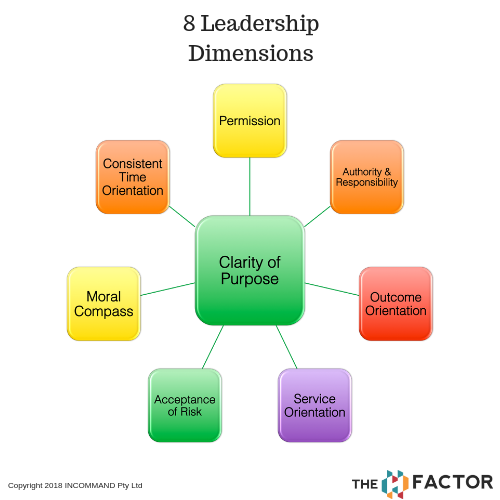|
Are you scared to say that you're not busy?
We seem to live in a world that has become addicted to being busy. The symptoms are everywhere around us. We're often made to feel guilty when we can't say that we've been "crazy busy". Apparently "crazy busy" can also be something to take pride in. We don't feel productive when we aren't rushing between tasks. We're told that time is money. Everything in our lives has to be booked in. Well, Change Agents, trick or treat? Trick! There is a whole heap of good stuff that we're missing out on because we're so busy being busy, worrying about being busy, and trying to ensure we are seen to be busy. Some of us genuinely are busy. All the time. There's little time for treats, and even the fun of halloween is either an addition to an already busy schedule, or an annoying disruption to it. Let's step back from the busy-addiction just for a moment and look at why this might not be all that good for us - or our businesses. WHY THE BUSY SPIRIT SHOULD BE EXORCISED
Again, Change Agents, trick or treat? Treat! We can change how this is! Instead of encouraging a culture of busyness, let's encourage a culture of productivity. That is, instead of running around doing stuff, let's plan for the stuff that needs doing. Let's go from being frantic, to being organised. At The H Factor, "the stuff that needs doing" is a technical term. It means identifying all the important things that need to be done in the business and then organising around them to ensure they can be given the right priority at any point in time. Yes, it is OK to be busy some of the time. However, if your business is dependent on everyone being busy all of the time, then it's time to call for the exorcist. Happy Halloween!
0 Comments
Leading a business culture is about managing humans. Business culture is 'the way things are done around here'. It is the unwritten rules and protocols that establish why, when - and especially if - people do things in a group, team, business, or organisation. Whenever more than one person is involved in something, a culture will be established. Often that culture develops without even the conscious awareness of the people involved. It's often not logical, sometimes it isn't even rational, but it is very human. Effective leaders are the ones that can navigate the often illogical, irrational, and emotional way that humans work. However, many managers find dealing with the illogical, irrational, and emotional nature of people very frustrating, especially if they come from technical backgrounds where they are used to managing 'things'. In managing 'things', a manager can usually identify a formulaic approach to problems or challenges that can be applied, and it will work consistently. Then they try the same approach with managing people, and when it doesn't work, it doesn't make sense to them. Accountants, engineers, and computer programmers, a special hello to you. 'Things' are managed, but people (and therefore culture) are led. To be effective leaders, we first need to change the way we see ourselves. Too often, we see ourselves as thinking beings that just happen to feel things. We like to see ourselves as a person who will always think rationally and logically first, and be able to deal with the emotions as a secondary and less important thing. That's not how it really is. As humans, we are emotional beings that think. In that order! So, instead of being surprised that we get emotional about some things, perhaps we should expect it. Instead of trying to suppress our emotions about some things, we really should try to understand them. When we then lead others, instead of expecting agreement, we should expect difference; it's not threatening if we seek to understand the emotion behind it. From being children we learn to 'fit in' to groups by adapting our behaviour by observing and following those we perceive as having authority. In different situations, that could be our parents, our siblings, a teacher, or a friend. As we mature we continually enhance and adapt the nuances of our behaviour. At every stage, we identify those with 'cultural authority'. We look to (and for) those who know the unwritten rules and protocols, that make up the 'way things are done around here'. Great leaders know how to be the 'cultural authority'. They influence, through their leadership, the behaviours, actions, and interactions that are appropriate in their team. A common feature in teams that consistently perform at the highest levels, is that the leader has established their 'cultural authority' through creating a highly established way of doing things. Every person seems to 'fit in', even despite varying personalities, experience levels, and backgrounds. These much respected leaders understand and apply 8 leadership dimensions. They are conscious of the inter-relationships between them, and apply them consistently in their communication, their own behaviour, and the example they set for others to follow. THE 8 LEADERSHIP DIMENSIONS As they apply these 8 dimensions, the leaders establish the unwritten rules and protocols that guide the decisions, behaviour, and interactions of their colleagues.
The 8 dimensions provide a framework for the leader to work with when navigating the emotional aspects of working with others, while also remaining grounded in the outcomes that need to be achieved. The leader can genuinely engage with their team to build on the established way of doing things. Some people refer to people management as a 'soft skill', but actually it is one of the biggest causes of frustration, poor performance, and employee turnover in nearly every business. We reckon that makes it brutally hard! Perhaps it's time to manage for humans, rather than managing for things, and then getting frustrated. We really enjoy working with business founders, and one of our favourite things to do is to ask them why they founded their business in the first place. There are a few responses that are quite common, such as:
The responses we are given, are totally consistent with research of business owners conducted over many years. From that research, the 3 most common reasons why people decide to start a business are excellence (that's the first answer above), entrepreneurship (the second answer above), and autonomy ("I really wanted to be my own boss"). Interestingly, "to make money" is not in the top 3 reasons - in fact, it is not even in the top 5! Actually, "I really wanted to be my own boss", is the number 1 reason people give for deciding to start their own business. If this is you, then we have a follow-up question for you to contemplate: So, how is that working out for your people? Usually, this question is met with a long pause, and then a long face. The reason we ask it is that many people have that desire for autonomy, and they start their business all inspired and excited about being in control of their own destiny. They then slowly go about re-creating the working environment they have been used to, and for their own people, they end up creating that environment where they want to be their own boss. We know why this happens, and we can help you avoid it. THE 4 HUMAN DRIVERS As humans, these are the 4 drivers to achieving fulfilment from the work that we do:
Fulfilment is important, because it is the most powerful motivator. Conversely the thought of having to do regular, sustained work for a period of time, knowing that there will be no way of attaining any fulfilment from it, causes us to seek other work. It is just a question of time. It doesn't mean that everyone has to have a high powered job. Sometimes just mowing the lawn provides these 4 elements of fulfilment, as does painting a wall, or even doing data entry. It's not hard to see how these 4 drivers are a fundamental part of being a business founder, but the red circle above is the key here. Even if you're giving people the opportunity to feel fulfilment from the other 3 areas, without autonomy, some people will crave the desire to be their own boss. They too will eventually want the autonomy of being a business owner, just like you did. Corporate environments are really bad at giving people autonomy. They create really detailed and prescriptive job descriptions, have rating based performance assessment, and rigid processes for everyone to follow religiously. There's little opportunity for people in these situations but to just do the tasks that are given to them, as they are prescribed for them, when they are required to do them, and without knowing the meaningful reason why they do them. Your small business can be different. As a business founder, you can:
This is why we created The H Factor system. Business owners can build their pathway to being their own boss - in a way that others will want to stay and play, because you and your business are providing them - and yourself - the opportunity to experience the 4 human drivers. We spare a thought for those devastated by actions driven by the toxic culture in the financial services industry.
We now know that, while some of Australia's biggest companies were promoting themselves as reliable and trustworthy, they were actually gripped by a culture of greed and self interest. The stories coming from the the Royal Commission into Misconduct in the Banking, Superannuation, and Financial Services Industry have been shocking. Financial service brands, some of them iconic, that have been promoted over many years as reliable and trustworthy, have now been shown to have been greedy and manipulative. How could this be? The culture of the entire industry has declined as its leaders instilled in their employees that the need to sell was greater than the desire to serve, fuelled on by replacing once stable salaries with commissions and bonuses. As a consequence loyalty has become less important than growth and, in many cases, profit has become more important than integrity. OUR MESSAGE TO BUSINESS LEADERS Why did these iconic institutions go into business at all? We doubt it was to charge dead people insurance premiums, or to push vulnerable people into financial destruction. It was probably because, actually, their founders wanted to change the world, such as creating financial security and independence for their customers. If only your Boards had focused on that purpose. If only your customers could have confidence that purpose was reflected in the the actions, interactions, and decisions of everyone in your organisation. The brand of your business is not just what your advertising says. It's not the logo, the tag-line, or the corporate colours. Ultimately, especially in a service industry, your brand is driven by how people feel when they interact with your company and the people in it. Good, bad, or ugly that's just the cold truth of it. And in this case, it has been ugly. Giving moral clarity is the leader's obligation to their team. It is not enough to say the purpose for which the organisation exists. People within the organisation must have confidence that they can approach their leader for clarity of the rules for achieving it, and that those rules will be applied - at any cost. This is the importance of having clear value statements. When you can describe your values in a manner that guides a positive culture and becomes the test for every decision, communication, and interaction in the organisation, then you have the means to apply governance and ensure that bad behaviour, such as has now been exposed, doesn't happen. If only you had value statements that said "honour the trust given to us by our clients", and "exercise moral leadership in all that we do", and those had become your non-negotiable rules of engagement, then you would have given clarity for your people to genuinely build your brand. It's the Boards responsibility to ensure your business model is moral and profitable, then to give the executive and staff the tools that they need to turn that business model into a valuable brand. That entails being able to articulate the answer to this question: How do we want people to feel when they interact with us? If only there was clarity amongst everyone in your organisations of the value statements that guide their behaviour, and that they were building a brand based on customers interacting with them feeling:
It's hard to imagine such shocking outcomes for customers taking place. If only! As managers, we employ others to help us get things done.
That might seem like stating the bleeding obvious, but it does surprise us how often we see managers putting up barriers to getting things done. One such barrier is the idea that your work colleagues can't be your friends. Especially when we first become a manager, we may feel the need to distance ourselves from our former colleagues. Now that we're the boss, we have to put our responsibilities ahead of our mates, don't we? Change Agents, let's take that on! We all spend a big chunk of our life at work so it's worthwhile to consider the quality of that experience. For ourselves, and those with whom we share our work-space. WHY WE SHOULD ENCOURAGE FRIENDSHIPS AT WORK
Do you have other points to add to this list? Why not discuss your ideas with your friends? If you're the manager of a team, then we ask, "what are you doing to build the friendships between the members of your team?" If you're serious about productivity, then it is a lot easier to get things done through people who are friends with you and each other than it is to get things done through people who are defensive, wary, unwilling to share, or who feel unsafe to collaborate. Building friendships is a far more powerful contributor to productivity than creating fear; and it is a much more natural, engaging, and enjoyable way to work. |
AuthorsH Agents write about the joys and challenges of entrepreneurship and managing people. Archives
May 2024
|
(c) Copyright 2024 INCOMMAND Pty Ltd. View our privacy policy and data security statement. Please note that your use of The H Factor system is subject to our Terms of Service.








 RSS Feed
RSS Feed